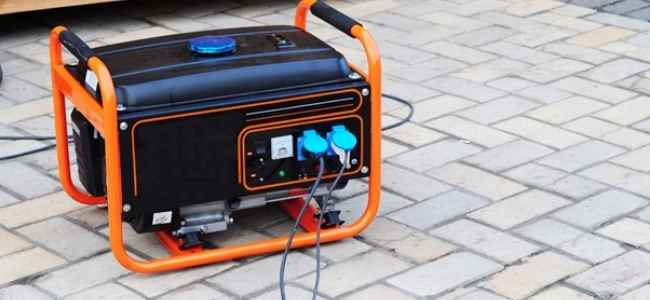There’s something about the fresh air that swirls around at an RV campground. It’s crisp and it’s wondrous. But running out of power mid-trip stinks.
Having a power source is what separates the RV campers from those weirdos that camp in tents and on the ground. Choosing between which RV generator is right for you can make or break your camp-cation. Muster up the energy and read on to find out which you should choose.
How Much Power Do You Use?
You might jump the gun and think that the power output of your camper is proportional to its size. Larger recreational vehicles have the potential to consume more energy, but they don’t necessarily have to. They contain a larger assortment of appliances and lighting, yet they’re not required to be turned on at all times.
A generator can be quite costly. It’s important to gauge the amount of power draw from your camper. This can be done a few ways, but the more accurate, the better — you don’t want to overestimate or underestimate this.
You can count up the number of appliances onboard and tally-up their wattage. A watt is a unit of power, and it dictates how much energy that device uses. Make an inventory of every lightbulb, lamp, and microwave on your camper.
Multiply each device by the number of hours you’d typically use them. This will yield an hourly power draw.
You could also use an electric meter that’ll do the averaging for you, and it’d more accurate.
Use these measurements to pick an adequately sized generator. If you think you’ll use 2000 watts of energy over 3 days, get a 2,500-watt generator. It’s always good to be conservative with your estimate and to pick one that’s slightly more powerful than your needs.
What Kind of Campgrounds Do You Visit?
A generator generates more than just electricity. It can be very loud.
Before buying a generator, consider the environment you plan on camping in. What’s it like there? Is there a lot of noise or is it serene?
You don’t want to be a noise factory, especially if it’s a tranquil place. As a rule of thumb, the larger generators will output a larger decibel. Be wary of this when you’re picking the power rating of your RV’s generator.
Pick Your Poison
RV generators run on three main fuels: propane, gas, and diesel.
Propane is greener than the other two, and propane generators are quieter. Diesel motors are powerhouses, but they’re obnoxiously loud and expensive. Gas is a happy medium between the two, and it’s the most readily available.
Some even prefer a solar generator for their campers. They’re sustainable and can generate free energy, but they’re a little more costly.
Power Your Dreams With an RV Generator
When choosing the best RV generator, it’s important to choose one based on your needs. You don’t want to get stuck at a campsite with no lighting or AC.
Measure your power usage on an average basis using math or a meter. Pick between a propane, gas, or diesel RV generator. You should also consider your typical camping environment and how noisy generators can be.
Interested in learning more about camper generators? Check out our other articles on camping and RVs.


